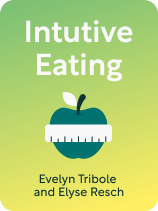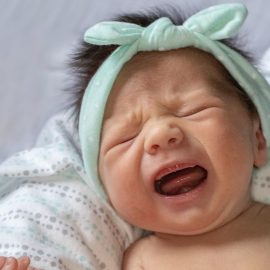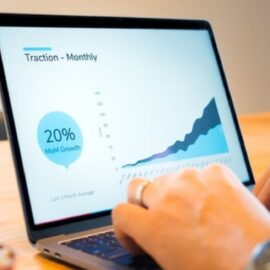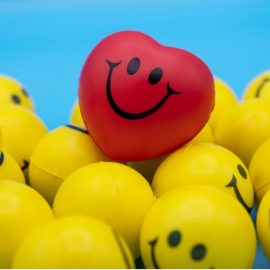

This article is an excerpt from the Shortform book guide to "Intuitive Eating" by Evelyn Tribole and Elyse Resch. Shortform has the world's best summaries and analyses of books you should be reading.
Like this article? Sign up for a free trial here.
Do you ever feel guilty after eating? Why do diets trigger self-judgment?
Diets often cause weight gain by triggering cravings for forbidden foods. If you fail to control your weight through dieting, you’re more likely to judge and blame yourself rather than question the effectiveness of diets or the societal ideals of the perfect body.
Let’s look at the root cause of feeling guilty after eating.
Diets Trigger Self-Judgment and Self-Blame
According to Tribole and Resch, feeling guilty after eating arises because our culture assigns moral judgments to body types or food choices. You’ve been influenced to associate a slim figure with not only health but also moral qualities and traits such as self-control and beauty. Similarly, diets categorize foods as “good” or “bad,” establishing a dichotomy that implies you’re “good” when you eat the allowed foods and “bad” when you consume the restricted foods. As a result, when you deviate from the prescribed “good” foods, you feel as if you’ve committed a transgression, which results in feelings of guilt, shame, or failure.
(Shortform note: Food advertisements reveal how we’re influenced to assign moral values to food and body types—for example, fruits are often marketed as “clean” or “pure,” while desserts are described as “sinfully delicious” or “indulgent.” Echoing Tribole and Resch’s views, experts suggest that these judgments are deeply rooted in fatphobia, which equates fatness with moral failure. According to one sociologist, fatphobia may have originated in European culture in the late 17th and 18th centuries, when colonists attempted to link being black with being fat to imply a lack of self-control that justified enslavement. Consequently, foods—and those who consumed them—were categorized into two groups: virtuous and gluttonous.)
The Cycle of Self-Blame and Restrictive Eating
Further, while you may initially feel virtuous and accomplished for sticking to “good” foods, being deprived can ultimately make you feel resentful and rebellious. And, as previously explained, the more you restrict certain foods, the more intense your cravings for them become, often resulting in binge eating or overeating. Rather than recognizing these responses as normal reactions to food deprivation, you tend to blame yourself for lacking willpower or discipline if you break your diet. According to Tribole and Resch, this self-blame for indulging perpetuates a cycle where guilt for not adhering to the diet triggers a return to restrictive eating—instigating another sequence of cravings, lapses, and self-blame.
For example, imagine that while on a diet, you give in to cravings for chocolate. Because you perceive this food as “bad,” you feel like you’ve done something wrong and condemn yourself for your lack of willpower. Your feelings of self-blame and guilt push you to do the “right” thing and return to the diet, which restarts the cycle of cravings, slip-ups, and negative emotions.
(Shortform note: Jason Fung (The Obesity Code), explains how common medical advice feeds into the negative feelings that can accompany dieting. The prevailing view links weight gain to consuming more calories than you burn, implying a lack of self-control among heavier people in regulating calories and exercising. As a result, health professionals often prescribe “eat less, move more” programs and then criticize those who struggle to lose weight. This contributes to the guilt people experience when deviating from their diets—even though their hormonal changes in response to food restriction, not their self-control, are to blame for their inability to stick to a diet.)

———End of Preview———
Like what you just read? Read the rest of the world's best book summary and analysis of Evelyn Tribole and Elyse Resch's "Intuitive Eating" at Shortform.
Here's what you'll find in our full Intuitive Eating summary:
- Why eating is often associated with guilt, shame, and fear
- How diets damage your relationship with food
- Ways to cultivate a healthy relationship with food






